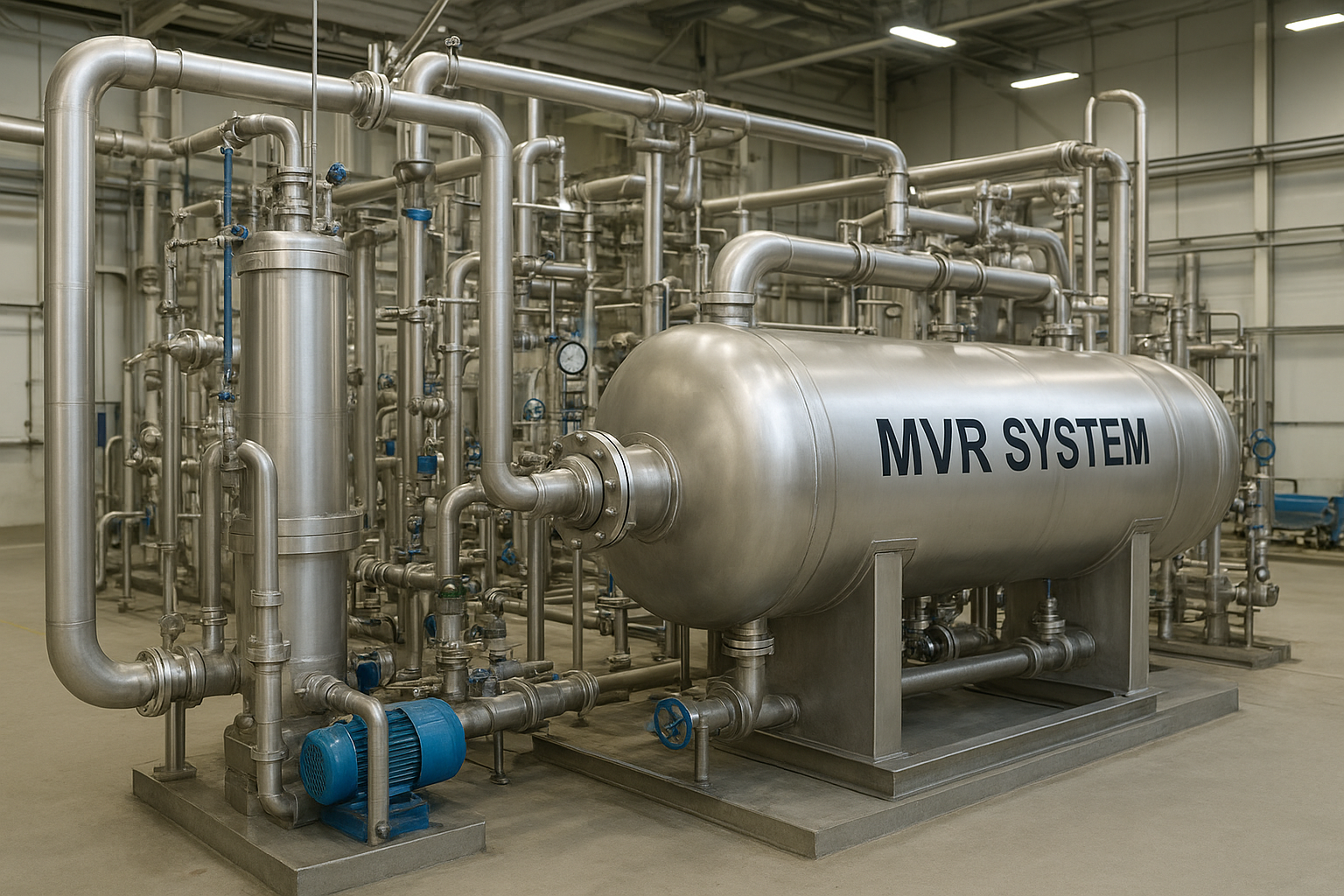Introduction
In industries like wastewater treatment, food processing, pharmaceuticals, and chemicals, evaporation is a crucial process for concentrating liquids or recovering valuable resources. Traditional evaporation systems often consume large amounts of energy, making them costly to operate.
Mechanical Vapor Recompression (MVR) systems offer a smart and eco-friendly alternative. By recycling the vapor generated during evaporation, MVR systems significantly reduce energy usage while maintaining high efficiency. This technology is a game-changer for industries aiming to lower operational costs and achieve sustainability goals.
What is Mechanical Vapor Recompression (MVR)?
MVR is an advanced evaporation technology that works by compressing and reusing vapor produced during the evaporation process. Instead of releasing the vapor as waste, the system increases its pressure and temperature, allowing it to be reused as the heating medium.
This closed-loop approach not only reduces the need for fresh steam but also cuts energy consumption by up to 90% compared to traditional systems.

How Do MVR Systems Work?
The working principle of MVR systems is straightforward yet highly efficient:
1. Feed Liquid Entry
The liquid to be concentrated enters the evaporator.
2. Evaporation Process
Heat is applied to separate water or solvent as vapor.
3. Vapor Compression
The vapor passes through a mechanical compressor or fan, where its pressure and temperature are increased.
4. Reused Heat
The compressed vapor is redirected back to the evaporator as the primary heat source.
5. Concentrate Output
The final concentrated liquid is collected for further processing or disposal.
Conclusion
Mechanical Vapor Recompression systems are revolutionizing industrial evaporation by delivering energy-efficient, cost-effective, and sustainable solutions. They not only cut operational costs but also align with global environmental goals.
For industries aiming to enhance productivity while reducing energy consumption, MVR technology is a smart investment. Whether in wastewater treatment, food processing, or chemical manufacturing, MVR systems ensure long-term savings and environmental responsibility.